On Saturday morning, I spoke with Bill Browder, the driving force behind the Magnitsky Act, which President Biden has used to sanction Vladimir Putin and several of the oligarchs who hold his wealth in trust. In Browder’s essential book Red Notice, Browder tells a compelling tale of how he and Sergei Magnitsky uncovered a $230 million tax fraud perpetrated by Putin’s cronies, and how Magnitsky’s murder in a Russian prison at the hands of Putin’s thugs prompted Browder to become the force behind the Magnitsky Act. Browder has devoted his life to exposing the corruption and human rights abuses perpetrated by Putin’s Russia.
In this interview, Browder spoke to me about how he thinks Magnitsky would react to the unfolding Ukraine crisis, the strengths and deficiencies of the sanctions imposed on Putin and his oligarch trustees thus far, what President Biden should do next, the importance of disconnecting Russia from the SWIFT payment network, whether the energy sector should be included in future sanctions, how he feels about the possibility that Donald Trump could again be elected president of the United States, and many other topics. The interview has been lightly edited for grammar and clarity.
How do you think Sergei Magnitsky would feel to see a law bearing his name used to punish Vladimir Putin for an indefensible act of aggression against a peaceful, sovereign nation?
Sergei Magnitsky wasn’t a political activist or even a human rights activist. He was just a young, idealistic professional who was patriotic about his country, and he ended up getting killed because he wanted to expose a crime committed against his country. But I think if he was looking down right now, he would be watching Vladimir Putin committing the most grave crimes against his own country and against Ukraine, and I think he would be outraged. And I think he would be happy to know that there was some tool to create redress for what Putin is doing.
What does it mean to sanction Putin personally, exactly … and is it more of a symbolic gesture than a practical one? As a practical matter, isn’t it more important to target his oligarch cronies?
It’s symbolic, but it’s very important symbolism, because it’s not just the United States doing this, but also the EU, which has traditionally been Putin’s biggest apologist. And the fact that they’re joining this effort and the fact that they’ve led in this effort—they were the first ones to do this—is highly significant. Now, it’s not going to have any material impact on Putin, because he doesn’t keep any money in his own name. He’s a very wealthy man, but the money he has is all kept in the name of trustees—people he trusts—and those people are the oligarchs, the wealthiest people in the country.
As to punishing those oligarchs, on Friday evening, Garry Kasparov tweeted:
Do you agree with Kasparov that the sanctions so far have ignored Putin’s worst oligarchs?
The list of oligarchs who are currently sanctioned is woefully small, and doesn’t address the lion’s share of Putin’s capital and the capital that’s been stolen from Russia. And so there’s a very long list of high-profile, well-known oligarchs from Russia who still need to be sanctioned. And I hope that as the crisis continues to unfold, the next step in the sanctions program is to add those people to the sanctions list.
Do you think the Treasury Department and President Biden don’t know who those people are, or do you think they do know who they are and just haven’t taken the steps to sanction them yet?
Well, I think everything is happening so quickly that it’s perfectly reasonable to assume that they’re not at the level of knowledge that I have, or Garry Kasparov has, because the people work on a lot of different issues, not just Russia. But many people from different governments and different lawmaking bodies have reached out to me asking for assistance in this area, so hopefully as the knowledge level increases, we will see some more of the high-value targets getting sanctioned.
If you had President Biden’s ear right now, and he asked you who are the next five or 10 people he could go after, what would you tell him?
I would say that, first of all, it should be more than five or 10, it should be 50. And secondly, I would start with the Forbes list of the world’s billionaires in Russia. And perhaps there are a few people who could be excluded, because they’re not in partnership with Vladimir Putin. But most of them have obtained their wealth, and maintained their wealth, by having a close relationship with Vladimir Putin, and looking after his money.
One of the biggest controversies regarding sanctions is whether President Biden ought to cut off Russia from SWIFT, a payment network used by financial institutions worldwide. On Thursday, Dmytro Kuleba, Ukraine’s Minister of Foreign Affairs, tweeted:
At his press conference on Thursday, President Biden was asked why he had not yet moved to cut off Russia from SWIFT. He said that the “sanctions that we have proposed on all of [Russia’s] banks is of equal consequence—maybe more consequence—than SWIFT.” What’s your reaction to that?
The communications coming out of the U.S. are sort of coming out of both sides of their mouth. They’re saying on one hand that they’re sanctioning 70 percent of the Russian banking system, and then they’re saying that it’s more powerful than SWIFT. I believe that Russia should be disconnected from SWIFT as a matter of urgency. I think that’s the mother of all economic weapons. It was used against Iran. It brought Iran back to the Dark Ages economically and financially. And based on how far Putin has gone in tearing up the international rule book and committing atrocities in Ukraine, that should be a commensurate punishment for him now.
More and more European countries have signaled a willingness to remove Russia from SWIFT, and recent reports suggest that the Biden administration is rethinking the issue as well. Do you expect that the United States is going to take that action soon?
I think that the United States, along with the EU, U.K., Canada, and other allies, will take that action pretty soon, for sure. I would be surprised if they didn’t. [Editor’s note: After the interview, the U.S. and the EU indeed agreed to remove select Russian banks from SWIFT.]
On Thursday, President Biden was asked why he is not taking more aggressive steps to sanction Putin, and he responded with respect to the sanctions he had already imposed: “Let’s have a conversation in another month or so to see if they’re working.” Given the intensity of the Russian assault on Ukraine, does it make sense for Biden to be talking about waiting a month to assess the effect of sanctions?
What you have to understand is that everything is moving so fast, and he’s not the only decisionmaker here. I mean, the decision to sanction Vladimir Putin was taken by the Europeans, and for the first time in my memory, the Europeans were leading on the sanctions. And so, I think that everything is moving so quickly that whatever was said yesterday is obsolete today in terms of this crisis, and so I wouldn’t rely on something he said yesterday.
Many critics, including prominent Republicans, have argued that President Biden’s sanctions on Russia cannot be taken seriously if they do not target the energy sector. Do you agree?
The person who’s making these decisions is Vladimir Putin. And so the main objective should be to create a cost that’s very personal to Vladimir Putin. And so I would say that going after state banks or the energy sector is good, but it only hits him indirectly.
Got it.
And so, the first priority should be hitting him directly. I mean, that should be going after the oligarchs. And there’s no reason not to go after the other—the energy sector, and the banks, and the other state enterprises, defense enterprises—but first and foremost, one should go after the oligarchs.
If Putin’s finances are squeezed, are you concerned about how he might react to the sanctions?
[Laughs] I’m more concerned about going to war with him—having the West go to war with him when he challenges NATO. So I would say that we should hit him as hard as we possibly can economically so that we can avoid a gun war in the future.
In addition to financial sanctions, what other actions or sanctions do you think are necessary? I assume, based on your experience with Russia’s abuse of Interpol in attempting to have you arrested for made-up crimes, that you believe Russia should not have access to Interpol. Are there any other systems that you think we should remove Russia from, besides Interpol?
Well, I think that, for example, Russia uses all mutual legal assistance with other countries to chase their enemies and go after people. And so basically Russia should be invalidated from using international treaties where they abuse their position, where they have abused their position. Certainly, Interpol’s one of them, but also just general mutual legal assistance treaties with America, or with Europe, other European countries—all that should be suspended.
Is there anything else that you think President Biden should be doing to respond?
I would say that he’s actually done a pretty good job. It’s taken a little while to get to this place, but I would argue that we started with—the first sanctions announcement was, like, sanctioning anybody who did business in the Donbas [laughs]. I would have given them a two out of 10 on that. Then they came up with a pretty good list of going after Sberbank and Vneshtorgbank and various oil companies and a few oligarchs and I would have given them an eight out of 10 at that point. And then when they’ve sanctioned Vladimir Putin, they’re up to a nine out of 10. And if they were to sanction the oligarchs and remove Russia from SWIFT, that’s a 10 out of 10.
Vladimir Putin has wanted to have you arrested for some time now. How did you feel when you learned in 2018 that Putin had personally asked Donald Trump to hand you over in return for allowing Robert Mueller to question some Russian intelligence officers—a suggestion that Trump called an “incredible offer”? And how did you feel this week watching video of Trump praising Putin as a genius for his invasion of Ukraine?
Well, I was actually more worried about—back in 2018, I knew that Vladimir Putin was after me because he’s been chasing me all over the world.
Of course.
But at that moment in time, I felt like maybe I was even going to be at risk being in America. And so, if Trump had been re-elected, I probably wouldn’t have felt safe coming back to America. So, it’s pretty horrifying to think that he could run for president again and could win, in which case my personal safety would be at risk if I visited the United States.
Can you tell us anything about your upcoming book Freezing Order?
I don’t want to get into too much detail, because we’re not yet in the launch period, but my new book is all about going after the money that Sergei Magnitsky was killed over, and finding out how far that money has permeated the West—and how far Putin was ready to go to stop the investigation.
That sounds fascinating. I’m looking forward to that. Thank you very much for taking the time. I really appreciate it.
Thank you. Have a great day and stay in touch.
Patrick Frey is a deputy district attorney for Los Angeles County. He is @Patterico on Twitter and his Constitutional Vanguard newsletter can be found at patterico.substack.com. His opinions are offered in his personal capacity and not on behalf of his office.
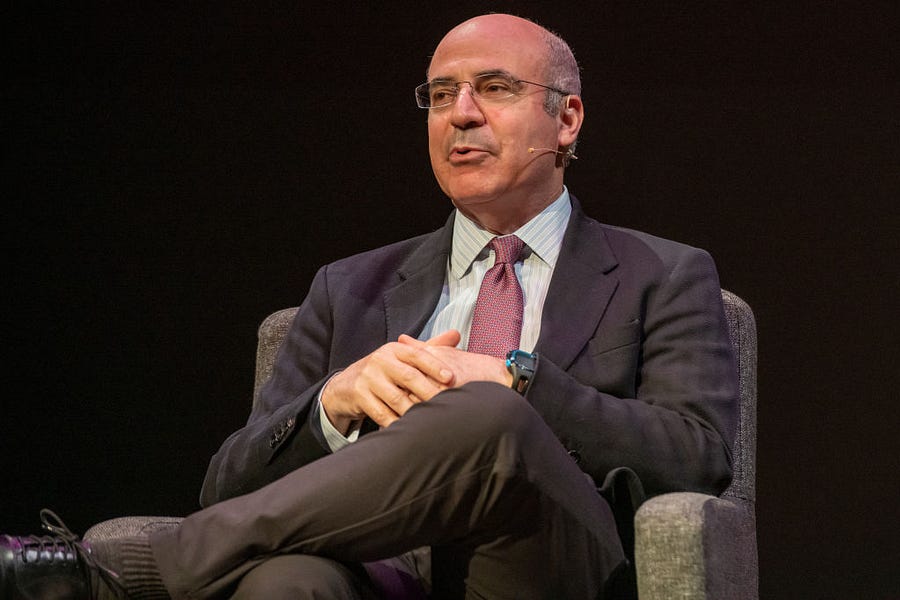
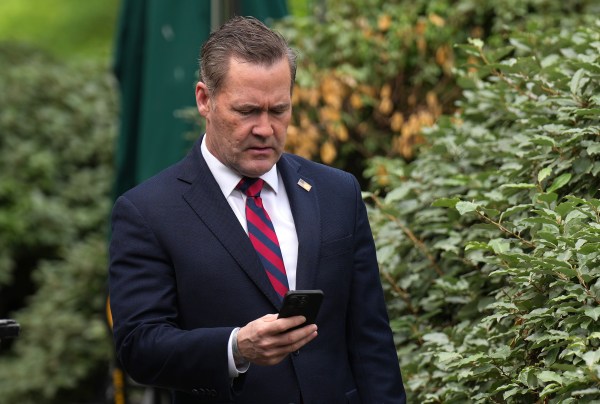
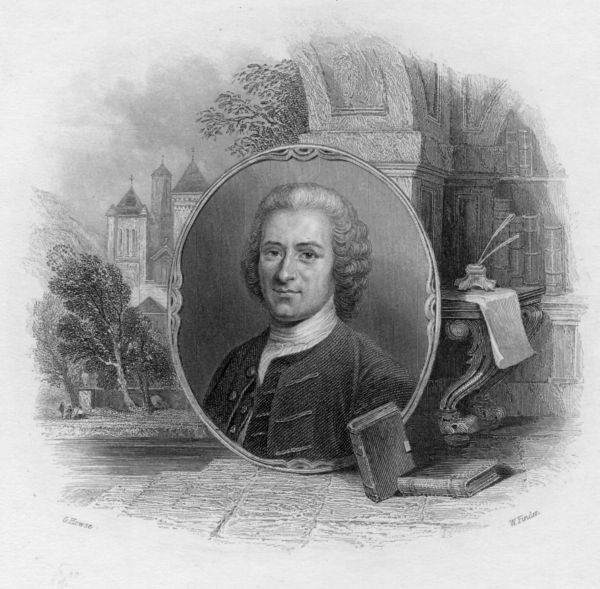
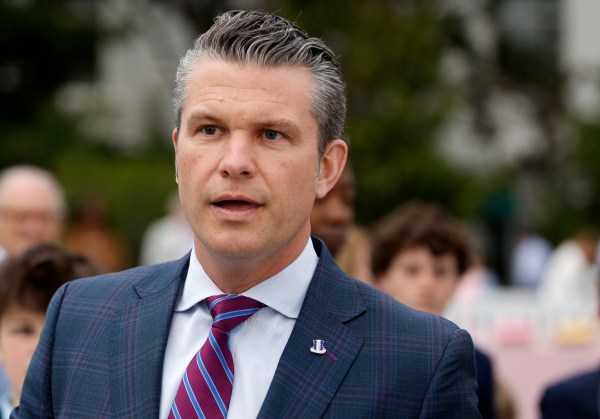
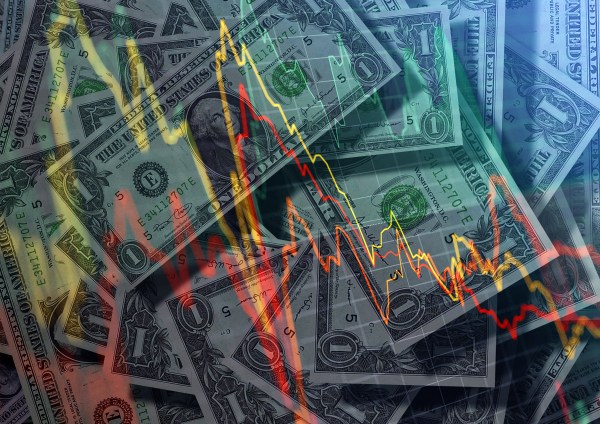


Please note that we at The Dispatch hold ourselves, our work, and our commenters to a higher standard than other places on the internet. We welcome comments that foster genuine debate or discussion—including comments critical of us or our work—but responses that include ad hominem attacks on fellow Dispatch members or are intended to stoke fear and anger may be moderated.
With your membership, you only have the ability to comment on The Morning Dispatch articles. Consider upgrading to join the conversation everywhere.